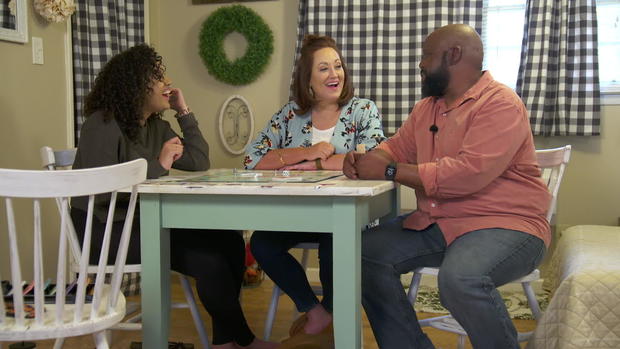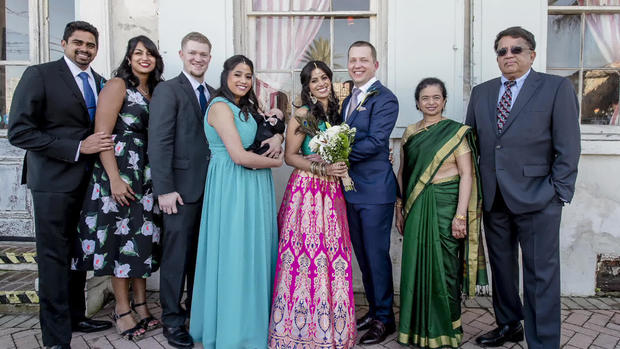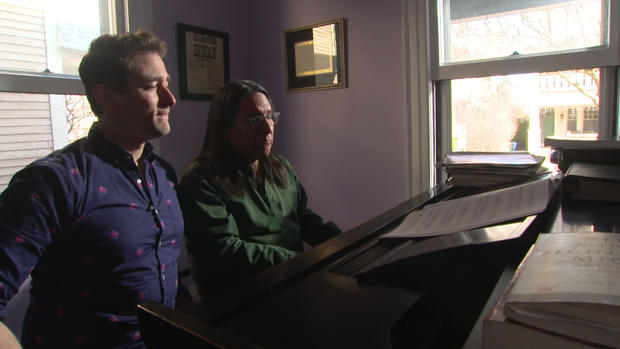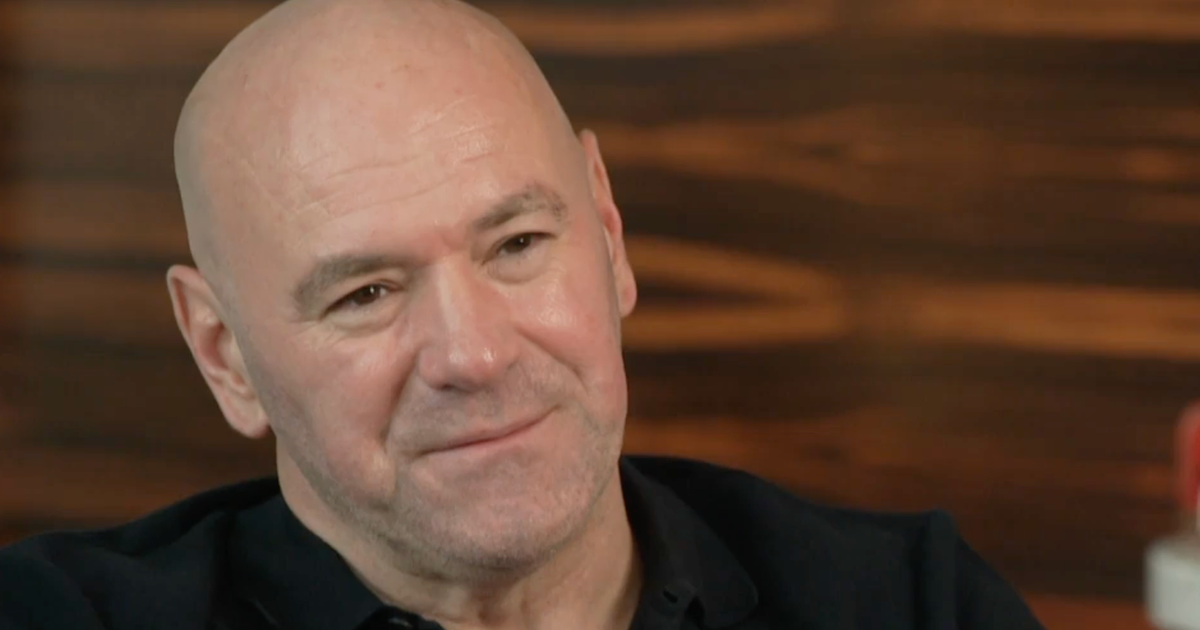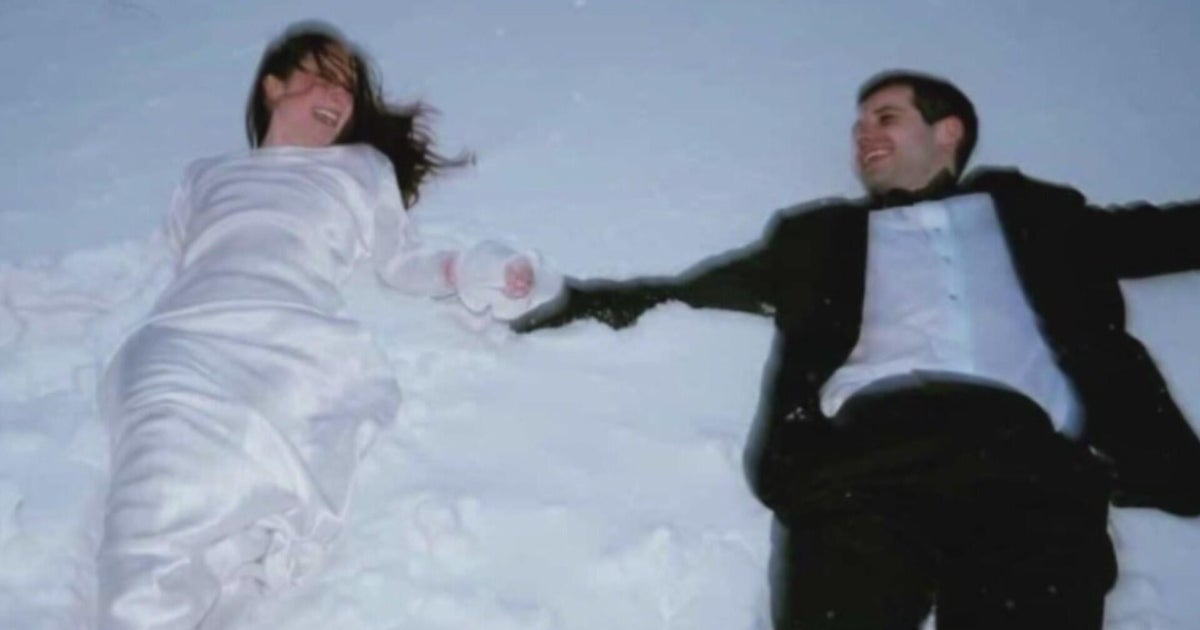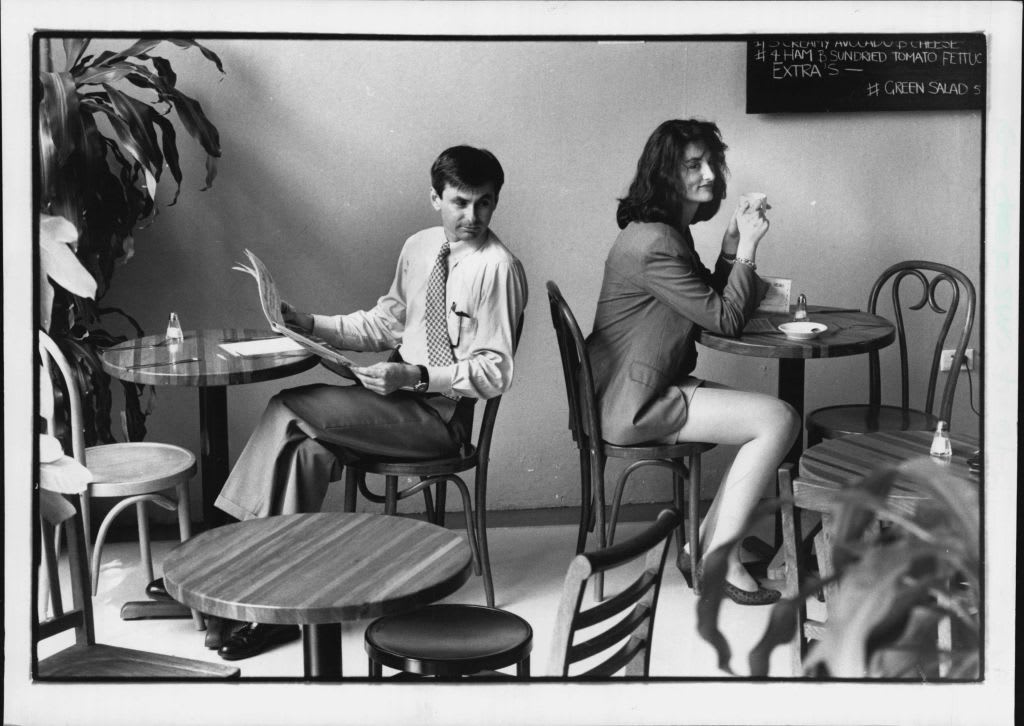Interracial marriages now more common, but not without challenges
When friends introduced Carlos Brock to Tonya Bohannon in 1996, they both just knew.
"Oh, man, it was just something about her," said Carlos. "The vibe that she put off, I thought, That's who I wanna marry!"
Tonya said, "He was real nice, he was just different than anybody I had dated before. He was just very genuine and kind."
Correspondent Rita Braver asked, "When your parents realized that you were seriously interested in someone from a different race, what was their response?"
"My mother was, she was cool with it," said Carlos. "But there some still today don't accept it. But we don't care."
"Sorry, I still get emotional," said Tonya. "It's been many years."
"Who gave you a hard time about it?"
"I don't wanna say, but it was someone very close to me that basically disowned me."
The Brocks married in 2000, with their daughter, Lexi, in the wedding party. "It was just about being happy with each other," Carlos said.
But even today, Tonya, who is a mail carrier, and Carlos, who owns a food truck, say there are still places in their hometown of rural Toccoa, Georgia, where they know they are not welcome; and people, even supposed friends, who can make unsettling comments:
"People always feel it necessary to say that they're not racist, you know, to us!" Tonya laughed. "And that they don't teach their children to notice color or anything. But in the same 30-minute conversation, the man says, 'But if my daughter came home saying that she was dating a Black man, I wouldn't approve of it.' Unfortunately, it's just still so normal."
But some things have changed in the half-century since the Loving v. Virginia case, when the U.S. Supreme Court declared that laws banning interracial marriage are unconstitutional.
- Almanac: Loving v. Virginia ("Sunday Morning")
Nowadays, you can hardly open a magazine or turn on the TV without seeing interracial couples.
According to the Pew Research Center, at least 19 percent of new marriages in the U.S. now involve spouses from different ethnic or racial groups – up from 11% in 2000.
And the General Social Survey found that only one in 10 Americans say they would oppose a close relative marrying someone of a different race or ethnicity.
But that doesn't mean that tension has disappeared.
With a Ph.D. in couples and family therapy, Racine Henry frequently counsels interracial couples. She says interracial marriages can be more difficult, "because they're more multilayered. There comes into play a lot more barriers than what a non-interracial couple will have to face."
She said that no one should be surprised by what Meghan Markle recently told Oprah Winfrey about the royal family's reaction to the impending birth of Markle and Prince Harry's son: "So, we have in tandem the conversation of, 'He won't be given security, he's not going to be given a title,' and also concerns and conversations about how dark his skin might be when he's born."
Henry said, "No matter how much status or money or privilege you might have, racism is always going to find you."
She said that message echoes the racism shown by many families across every social and economic level. Braver asked, "Because we can't have a mixed race child in our lineage?"
"Yeah, because it means too much that our bloodline is going to look very different than what it's supposed to look like," said Henry.
And, she said, at this moment in history many interracial couples in the U.S. are feeling increased anxiety, with heated public debate on issues involving racial justice, immigration, and even direct attacks on minority groups.
Braver asked, "What do you say to the couple to try to diffuse something like that?"
"Well, I first try to validate the partner who feels aggrieved," Henry replied. "And I think it's a powerful moment for the White partner to realize that their feelings are secondary; their partner's experiences whether they agree with them or not, need to be taken as serious and as true as their own experiences are."
Case in point: Brian Law and Vidya Rao say, in the early days of their relationship, he often didn't understand when she felt that someone had been disrespectful to her – at least in part – because of race. "I realized about myself that I do need to learn in order to be more supportive," Law said.
Rao added, "I'd be all upset and huffing and just slamming the door and pissed, and he's like, 'Wait, what just happened?' It's been over the course of eight years of me, you know, being honest when these things happen, pointing them out. The best thing about him is that he was open to that and he did learn."
Now living in Los Angeles, they met while working at a tech company. He was from a Louisiana Catholic family; she was a Hindu, whose parents were born in India.
Braver asked Rao, "Did you think as you were growing up your parents had expectations that you were going to marry someone else of Indian descent?"
"It was sort of a given," she replied. "My parents had an arranged marriage; they literally met for the first time three hours before their wedding."
Their parents all accepted their decision to marry; still, Rao informed Law that he needed to show appreciation for her mother's Indian cooking.
Law recalled, "One of the first times I did meet her family, her mom made me dosa, and dosa you eat with your hands. And I just jumped straight in and did it. I think that is part of my Southern culture, is that we eat with our hands!"
"He ended up going four rounds, which my mom loved!" Rao laughed. "And that was the key to her heart."
Tim Long, a pianist and conductor who grew up in Oklahoma's Muscogee Creek Nation, and Chris Herbert, a classical singer from Connecticut, fell in love over their love of music: "Although we have completely different backgrounds, there was something that connected us pretty immediately," Long said.
Their families mostly approved, with Herbert's aunt, Martha Stewart, throwing them a fabulous wedding party. But along the way, Herbert noted, "I had a family member who made a stereotypical, derogatory action. I don't even want to describe it, because it adds power to it."
"With this one specific one, I was quite angry," Long said. "It led to a lot of conversations between the two of us. And it eventually opened up a great conversation with the family, and it brought us closer together."
Now married for 11 years, they're still adjusting to each other's cultural differences. Herbert said, "I was trained as a child, when you meet somebody new, you smile at them, you also ask them questions about themselves."
"And I think that's largely a Caucasian American manner, that you smile when you don't necessarily mean it," Long said. "And I don't think many indigenous people decide to smile; they smile when the emotion calls it up."
Long and Herbert have decided not to become parents. But for many interracial couples, the issue of children brings its own set of joys and challenges, especially worries about how their children will be treated.
Which brings us back to the Brock family, and daughter Lexi," who told Braver, "Kids in middle school are mean, and so then it's, like, 'Oh, like you're too White,' or 'You're too Black.' 'You're a mutt.'"
A mutt? "Yeah."
"And how did you react when people said stuff like that to you?"
"It hurt, you know, at first," Lexi replied. "Like, why are we not good enough, you know? Because my skin's tan? That's sort of justification of that?"
But the number of multiracial Americans is steadily rising, and so is the visibility of bi- or multiracial role models, first President Barack Obama, and now Vice President Kamala Harris.
"When they called the race," Lexi said, "that was monumental for me. I saw little tiny girls crying, but like, I cried, too, you know? Because that was the first time."
And the Brocks – and other interracial families nationwide – understand that history is marching with them, because in the end, love really can conquer just about everything.
Braver asked Brock and Tonya, "What's been the great part of your relationship for both of you?"
"We just have some good times," she laughed.
He replied, "The greatest thing for me about it is, I would have to say, the happiness."
Web Extra: Kim Parker, director of social trends research at the Pew Research Center, on the increase in interracial marriages in the U.S.:
For more info:
Story produced by Robbyn McFadden. Editor: Carol Ross.
